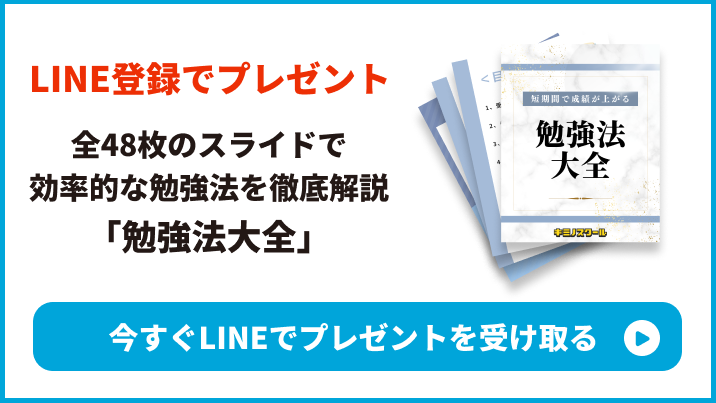英語の長文が読めないの…。諦めないで!英語長文の読み方はこれで解決!
英語の長文読解のコツ
- 読む時には、英語を英語で理解しましょう。
- 長文に読み慣れましょう。
- 習うより慣れろ、に尽きます。
- 文を区切って読みましょう
長い文章でも、区切って読めば、英文の頭から意味を理解できます。区切る箇所にスラッシュ等を書き込んで読んでみましょう。
区切るポイント
- カンマの後
- 接続詞・前置詞・不定詞の前
- 関係代名詞の前
- 関係代名詞が省略されている前
- 文頭にある副詞の後
英英辞典が効果的?
- 分からない単語を引きます。
- 単語の意味を説明する英文に分からない単語があれば、また辞書を引きます。
- 調べた単語は、ノートにチェックして単語を記録し、覚えたかどうかもう1度確認します。説明文だけでなく、例文も読んで理解します。説明で分かりにくくても、例文で納得できることも多いし、単語の使い方も覚えることができます。
慣れてくると、早く引けるようになります!英英辞書を使うと、英語で理解する能力が英和辞典よりも早く身につきます。
英語を読む習慣を
「英語を読む習慣」が身に着けば、英語を英語のまま理解できるようになるので、リスニングも向上し、英語のフレーズが自然に口から出るようになります。
読む速度を上げるためには、簡単なものを多く読むことです。辞書ばかり引いていては、多読の訓練にはなりません。読むためには本の中の9割ほどの単語を知っていなければなりません。
ほとんどの単語を知っていれば、知らない単語があっても文脈から推測できます。全部の意味が分からなくても、8割ほど理解できれば概要が分かります。
文法と読解で必要なこと
文法をやるには単語が必要です。読解をやるには単語、熟語、文法が必要です。それらを繋げて覚えましょう。
学習というのは全てを絡めて勉強するものではないですか。英語は、延いては(ひいては)国語、歴史、科学、数学とも繋がりを持って来ます。
そして、入試はふるい分けるテストです。スラスラ読める内容にはなっていません。訳せない箇所は受験生がいくら頑張ってもいくらでもあります。
パラグラフリーディング
1段落(パラグラフ)ごとに読んで行きます。1つのパラグラフ(段落)には1つの主張があります。1つの段落で主張の説明、理由、言い換えがされています。それが集まって長文になります。
長文で何を言いたいのか知りたい場合には、1つのパラグラフの言いたいこと(主張)を知ればいいのです。始めのパラグラフを主張を知れば良い、ということです。
早速実践‼︎2001年慶応理工学部の問題を解く
What is science? The word is usually used to mean one of the three thingsor a mixture of them. Science sometimes refers to a special method of finding things out. Sometimes it means a (1)body of knowledge arising from discoveries. Finally it is used to represent all the new capabilities and methods that emerge from those discoveries. This last domain is usually called technology. But if you look at the science section of newspapers and magazines you will find that advances in theoretical research and their practical application receive just about equal attention. This is not surprising for the most obvious characteristic of science is its usefulness the power it gives us to do things. One (2)dramatic example is the Industrial Revolution which would surely have been impossible without the development of science. The human capacity to control disease to produce quantities of food adequate for the world’s greatly expanded population and to achieve full production without resorting to slave labor reflects the development of technological know-how. Now this power to do things carries with it no instructions on how to use it either for good or for evil. Such is determined solely by how inventions are used and by our own priorities. Here most of us understandably have (3) ambivalent feelings. On the one hand we are pleased with improved production; on the other we worry about the effects of automation. We are happy with the development of medicine but then worry about the birthrate and the fact that no one dies from the diseases we have (4)eliminated. We rejoice that the microscope has revealed the realm of the bacterium and the virus but then we are beset with fears that evil scientists will use their knowledge to create incurable diseases. We are delighted about the great advances in transportation and communications but then express concern about the loss of cultural diversity. We eagerly take to the Internet and then fear the power of super computers to (5)snoop on us. We look to nuclear power as an enduring source of energy and yet greatly fear the risks inherent in its use. I was once taken to see a Buddhist temple where I was told:“every man is given the key to the gates of heaven. The same key opens the gates to hell.” And so it is with science. Lacking any instructions as to which gate is which some of us may be inclined to throw the key away. Others however will choose to struggle to make the best judgment possible. The value of science lies in the hope that it will indeed open the gates to a better world.
1. 下線部(1)~(5)の語に最も意味の近いものをa~dの中から1つ選びなさい。
(1) a. consequence b. limit c. person d. quantity
(2) a. evident b. notorious c. remarkable d. typical
(3) a. confident b. mixed c. numerous d. sympathetic
(4) a. aggravated b. diagnosed c. removed d. struggled
(5) a. dominate b. embarrass c. threaten d. watch
2. 波線部の without を意味を変えずに書き換えるのに最も適切なものをa~dの中から1つ選びなさい。
a. had it not been for b. if they had not been for
c. if they had been for d. if it had been not for
3. 本文の内容から判断した場合次の(A)~(D)に続く表現として適切でないものを1~4の中から1つ選びなさい。
(A) The word“science” indicates…
1. a double-edged sword whose effects depend on the owner’s use.
2. a force for enhancing the human capacity to accomplish the impossible.
3. exclusively the theoretical domain of new findings.
4. the field that is also called technology.
(B) The importance of science is reflected in such an example as…
1. its capacity to deal with world food shortages.
2. the re-enslavement of people in developing countries.
3. the amazing power it enables us to manipulate.
4. the wide coverage its practical achievements get in the written media.
(C) The author suggests that…
1. advances in transportation and communications have diminished cultural
differences.
2. the development of medicine has contributed to the “population
explosion.”
3. we find ourselves worrying about the development of biological weapons.
4. we should discontinue the use of nuclear power because of the risks
involved.
(D) At a Buddhist temple the author learns that…
1. scientific knowledge naturally leads us to a better world.
2. we are offered the key to the gates of heaven and hell.
3. we may be tempted to avoid risk-taking.
4. it is up to us to choose between happiness and misery.
慶應理工学部だからって恐れることはないです!Let`s try!!





